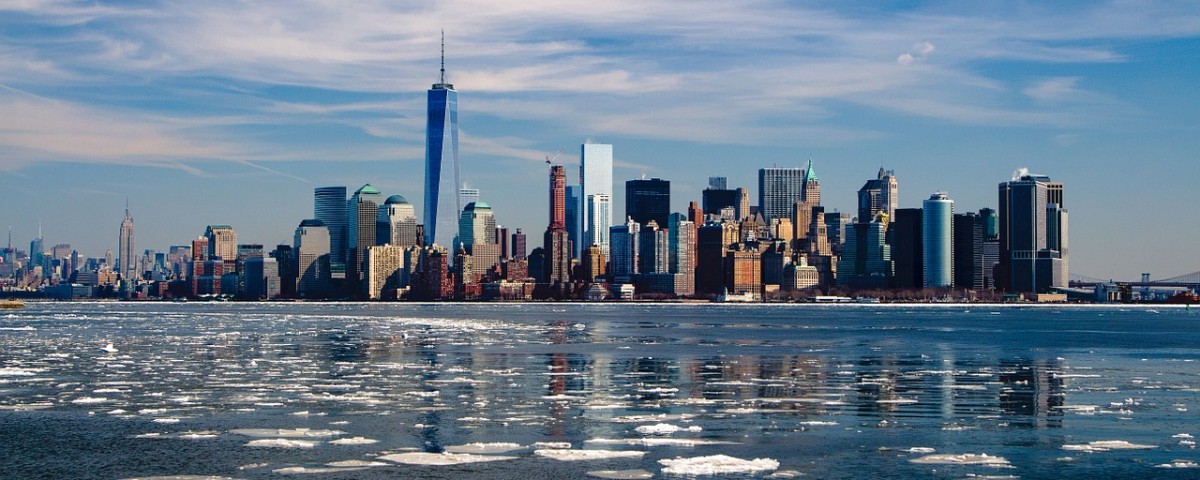The Role of Destination Marketing in a New U.S. Tourism Environment



The Role of Destination Marketing in a New U.S. Tourism Environment
Here we reproduce the article Chris Pomeroy wrote in the MMGY ‘s blog a few weeks ago.
“Well, I say chaps, it has been a lively old week over there!” My colleagues in our U.S. offices think we Brits really do speak like that, so I thought I’d play the part just to break the ice during our weekly video conference. Nobody laughed, so I guess the concern on his or her face was more genuine than my accent. We chatted for a while and it was decided that, as a non-U.S. citizen living in Europe, I am far enough away and far enough detached to be able to comment on the effect of the recent events on the tourism industry without getting political.
Back in 2001, I was managing the PR in Spain for what was then the British Tourist Authority (now Visit Britain). Everything was going splendidly until the cow’s proverbial hit the fan. Actually, to be more precise, the cows hit the front pages. Some of you may remember the outbreaks of mad cow disease and of foot-and-mouth disease. The British government, in a desperate attempt to show farmers that they had the situation under control, urgently imposed restrictions at all airports and ports. Suddenly, without warning and without knowing why, each of the millions of passengers entering or leaving the country found themselves waiting in line for hours to trudge through a pool of disinfectant under the scrutiny of military vets and paramedics. Of course, by the time these images reached the media in long-haul tourism markets, the scene looked apocalyptic and you would have thought we all had the plague.
There was a, albeit fine, silver lining to that dark cloud that threatened the U.K. tourism industry. The U.K. government soon understood that TOURISM MATTERS. And destination marketers learned that while we may not always have the ability to influence policy, we do have the power to provide strategic guidance that can impact our brands perceptions.
Mad cow disease and foot-and-mouth disease were of no risk to humans. This was a veterinary crisis and the cost to British agriculture was around $1 billion, yet the loss to the U.K. economy resulting from the drop in tourism directly related to those apocalyptic airport images was over $3 billion. In hindsight, it wasn’t only the cows that were mad. Since 2001, tourism has been taken seriously as a major force to the U.K. economy, increased budgets were allocated to promotion and now, whatever the crisis, the effect on tourism is given consideration before any knee-jerk action is taken. Sometimes we only value something when we lose it, and it took a major blow to the economy for the British prime minister to stop taking tourism income for granted.
Remember George Santayana? No, not Carlos Santana … George was a 19th-century Spanish philosopher who is credited with first stating, “Those who cannot remember the past are condemned to repeat it.” I have heard this quote repeated often this week and it reminds me of those lessons learnt in 2001.
Starting from the premise that freedom of movement is vital to our industry and no industry likes to close doors on clients, I suspect the economic impact of tourism was, once again, underestimated this week. This travel ban was, on paper, supposed to affect only a tiny segment of the U.S. tourism market. If you add up the total travelers from the countries affected it would barely register on the tourism statistics. In practice it has sent a message to the world, intended or not, that will certainly affect the perception and value of the U.S. tourism brand in the eyes of millions of travelers all over the world.
Like it or not, the scenes at U.S. airports actually inconvenience the totality of passengers arriving to the country, and with each negative experience by a traveler, the U.S. tourism brand loses equity and the tourism industry loses money. Travel and tourism is such a complex multi-layer industry that long-term effects of policy can sometimes be hidden under obvious, practical facts. The more you scratch at the implications on the surface, the more complicated it becomes. Can you imagine, for example, a multinational, multicultural corporation making a decision to hold their annual conference in the USA in the next 90 days? I am not saying it is impossible – but it is going to take a lot more persuading, and that means a significant marketing spend for destinations and their local stakeholders.
It’s not just about inbound tourism either. Policy and politics will affect outbound travel too. In our annual Portrait of American Travelers® research, among travelers that said they would be taking fewer trips in the next year, 12 percent cited “Airport security is too much hassle” as a reason. So we can expect even more travelers to stay at home simply as a result of stricter border controls, longer lines and other minor inconveniences taking the shine out of the travel experience. Perceived safety also has a significant impact on U.S. outbound travel and given the international response to the first weeks of the new administration, it would not be unreasonable to assume that U.S. citizens will start to feel less welcome in certain parts of the world and therefore less inclined to travel.
Those of us that remember how, in 2001, images of that anecdotal inconvenience at Heathrow airport plunged the tourism industry into a crisis costing billions to the U.K. economy are today viewing the images of U.S. airports with a sense of foreboding.
It would be a big mistake for any government in today’s world to take tourism’s contribution to their economy for granted. Even in the USA, tourism generates more jobs and wealth than the automobile industry, steel manufacturing or mining. It would be a strategic mistake to underestimate travel and tourism as a major economic driver in the ongoing recovery. “America First” may be an effective rallying cry for some industries, but for tourism and other service industries the only mantra is, “Customer First.”
There may be a short-term decline in international arrivals based on international perceptions, and U.S. destinations and suppliers will need to think about short-term strategies to focus more on certain markets that are less affected. The good news is that our latest Portrait of American Travelers® research has shown that intention to travel is at record levels among U.S. travelers, and disruptions of the type we have seen this week tend to pass rather quickly. So I foresee a pretty fierce competition among U.S. destinations and suppliers to gain share in new and emerging markets, both American and international.
I personally share the pragmatic and proactive stance of USAirtours CEO Guy Novik who today was quoted in U.K. trade magazine TTG as saying, “While the travel industry cannot control what message comes from the White House, it can collectively promote the USA as both a safe and welcoming country to visit.”
As marketers, we can’t always influence policy, and I have spent my professional life passionately preaching the importance of separating tourism promotion from politics. Over the last 25 years, I have seen how the most effective destination marketing inevitability comes from destinations where politics are not allowed to interfere with promotion. As professionals, it is as useless to comment on a situation caused by changes in policy as it is to comment on why a client destination was hit by a hurricane or virus. Ours is not to reason why, but to proactively and responsibly react to any market climate. We have two important obligations. First, we must coolly analyze and understand the situation, and then we must provide sound strategic and practical guidance.
Strategies must be based on research, and we will be monitoring the situation carefully both at home and abroad with our own proprietary research and third-party partners capable of monitoring everything from airline cancellations or rerouting to search trends or social media conversation. Being able to make informed recommendations based on research and experience rather than subjective personal or political criteria will be vital to navigating turbulent waters.
Original post in the MMGY website.
By Chris Pomeroy

Update your browser to view this website correctly.Update my browser now